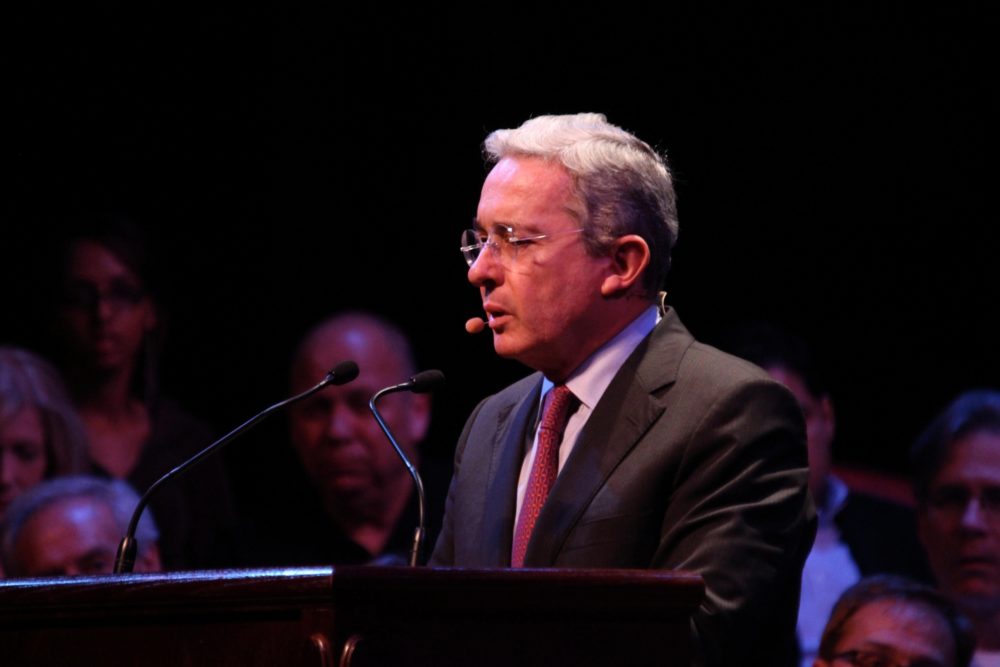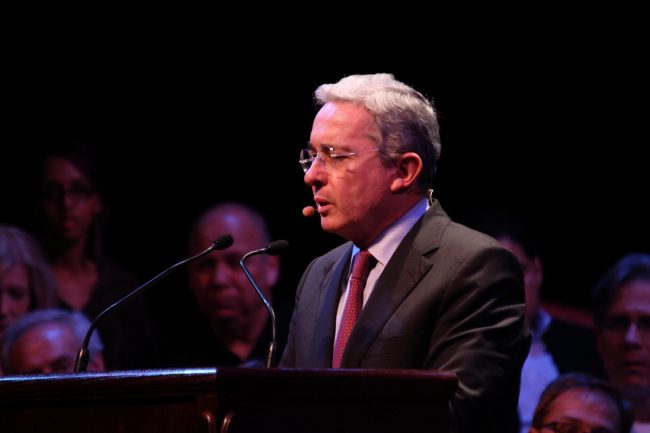
Alvaro Uribe, former president of Colombia, speaks about economic, social and political issues facing the country at SMU’s final Tate Lecture of spring 2013 on May 7. (Christopher Saul / The Daily Campus)
President Alvaro Uribe spoke passionately about Colombia’s political and economic climate, especially its natural resources, Tuesday at the final Tate Lecture of the year.
“Colombia has enormous resources,” Uribe said. “We do not need to cut the jungle down.”
He spoke about water being “tradeable in the short term” and said that Colombia’s focus in terms of natural resources needs to combine the production of food, energy and water without sacrificing land.
However, it was when he opened the second half of his lecture to audience questions that his insistence on the co-existence of justice and peace became clear.
“Everyone wants peace in Colombia,” Uribe said. “But in my opinion, peace cannot be at the expense of insecurity.”
Uribe explained that while Colombia has many issues related to narcotic trafficking, the country can still win the battle.
“We planted the seeds,” Uribe said of his time as president. “The country when we left was not a paradise, but we are doing better.”
Uribe said his government “made the decision to reverse and change” the security problems. He said that Mexico acted similarly, and in turn has turned its tables just as Colombia seemingly has.
“Six years ago [Mexico] said the terrorists were going to prevail over the democracy,” Uribe said.
Now, he said, this is no longer the case.
“We can see the countries in the region that can recognize their problems with security,” Uribe said, “and have decided to fight these problems.”
Uribe did not share the same sentiments regarding Venezuela. He did not avoid using the country as an example of what he stands against – and the president of Venezuela has made clear his interpreted poor relations with Uribe.
“In Venezuela, the government is not is this fight,” Uribe said of combating violence. “My country has come down…to less than 200 cases [of violence each year]. Venezuela has gone up…to more than 1300 cases.”
Referring to changes he has seen between the end of his office and the state of current Colombian affairs, Uribe became impassioned over questions of government officials formerly involved in “terrorism.”
“They cannot be politically electable…I am against impunity,” Uribe said.
He spoke to the importance of bringing justice for the sake of the victims.
“If the price of peace is to give [formerly-convicted officials] a shorter sentence, I agree,” Uribe said. “But never impunity.”









